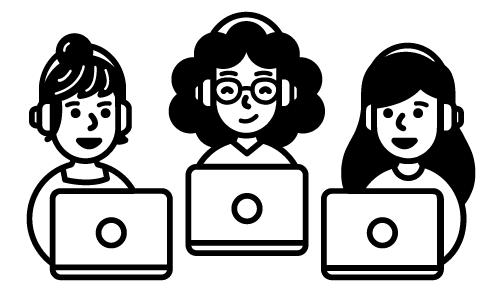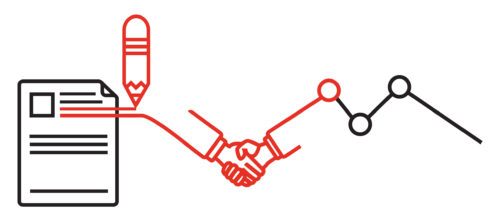As an Israeli feminist blogger and online activist, I have been fortunate to come across and engage with empowering women over the years. But this is the first time in my career I feel I can be the one inspiring women and making a difference in the industry. I’ll tell you how in a moment.
First, let’s talk frankly about the shortage of women in development roles in the software industry, why it’s so, and how it starts with women believing they can’t do what they certainly can do and how the tech industry does little to bust this myth. In fact, it’s safe to say the tech industry instead encourages this misconception by continuing to hire more men than women for development roles.
My Story
I started my high tech career as a sys admin in the Israeli Air Force some gazillion years ago. (My first solo task was upgrading the entire unit from Windows 3.1 to Windows 3.11.) From there, I progressed both technically and administratively through a long line of increasingly complicated tech support roles. Despite my increasing knowledge and widening skill set, I remained terrified to learn how to program.
See, I always thought of myself as more of a creative type. A non-linear thinker who excels at technical troubleshooting due to the associative nature of the job, but could never in a million years develop my own algorithms. Come to think of it, my own inner uncertainty sounds a lot like the standard stereotype of a woman, doesn’t it? An ethereal creature, driven by intuition, and unable to manage certain types of logistics or orchestration without the aid of a man. Just add a spooky castle and a dark gentleman with a mysterious past, and you’ve got yourself a gothic romance novel.
A couple of years ago, however, I realized I was no longer willing to let my life be ruled by my fears. This new phase (which I like to call “adulthood”) resulted in various changes. The main change was leaving my long time employer to become a freelance writer and tech support consultant, something I dreamt of doing for many years.
How she codes Changed My Life
The second major change was deciding to tackle the programming “demon,” which is when I stumbled upon an organization called she codes (founded in Tel Aviv by Ruth Polachek in 2013) that provides free programming education for women, in the hopes of balancing the numbers of male and female developers in the software industry. I got excited about this idea and decided, what the heck, I’ll give it a go. I figured at worst I’d network a bit, and at best, be able to develop customer-specific solutions or even create my own tech support platform.
When I arrived at the first meeting I felt like a shaken school girl, but I soon became part of the empowering and cheerful community that is she codes. I started studying web development and later switched to Python programming. Soon I was named my branch’s social media manager and about a year later initiated and led a major project, writing specifications and leading teams of UX designers, programmers, QA, and such. The leap of faith paid back. My CV was now as handsome as they come, and various job offers started coming my way, which eventually led me to IOD.
Confidence Leads to Success
Here, at IOD, where I am Head of Community and responsible for recruitment, my personal aim is to track down female tech experts and give them a platform to display their knowledge in a very useful way and get paid for doing so.
IOD teams up tech experts with superstar editors to create content that marcom writers cannot produce, due to their lack of technical experience. Our mission is to captivate our customers’ highly skilled technical audience with what we think of as “our no fluff approach” of delivering hardcore tech content.
So many women in the high tech industry find themselves shuffling their feet around core technologies, providing second-line services such as HR, finances, tech support, tech writing, marketing, sales, and operations, while avoiding programing and DevOps. As the saying goes, the only place in Tel Aviv where lines to the women’s restroom are shorter than the line to the mens’ is at tech conventions.
While our IOD team of editors is heavily populated by women, women constitute less than 15% of our tech experts team, which more or less represents their percentage in the global high tech industry.
It’s time we see real change in our industry. And I want to be a driver of that change.
Be Part of the Solution
If you are a manager at a software company, I encourage you to join the Tech Talent Charter (TTC) initiative (as HP just did, along with several other industry leaders) and to promote your female employees to development roles. If you have no female employees under you, I invite you to ask yourself, “Why?” I challenge you to look at your own bias, and at your own contribution to a false stereotype that’s still prevalent in this industry despite 2018 being hailed as possibly “the year of the woman.”
If you are a female tech expert in the fields of cloud technologies (Azure, AWS and GCS), cyber security, DevOps, Machine Learning, enterprise networking or data, or if you know one, I invite you to contact me today. We will, as with all of our tech experts, provide you with tech blogging mentorship, cutting-edge testing and learning opportunities, and help you develop your own personal brand and expand your professional network.
Women in Tech: Let’s Thrive
My young cousin recently joined a year long web development training program and was startled to discover she was the only woman in her class. She called me and said, “I don’t know if I can do this.” “Of course you can,” I told her. “It might be scary, and at times, challenging, but you will work hard and succeed.”
I hope the tech industry will be different by the time she’s ready to look for employment. I hope by then I’ll have contributed a small part to that by hiring female tech experts. But as Adriana Gascogne, founder of Girls in Tech was quoted as saying in Forbes, “it’s more than just hiring more women or just throwing money at a diversity and inclusion executive. It’s building a culture that is inviting and creates a comfortable environment for women to thrive.”
This is what we do at IOD. Join us.
= = =







